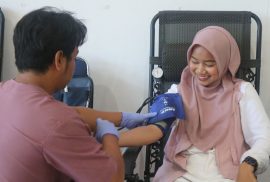Maurisa Zinira
Democracy activists consistently predict polarization. While several groups argue that polarization is inevitable and may even serve as a catalyst for democratic development, uncontrolled polarization can undermine the fundamental principles of a functioning democracy. With the upcoming political year, there is a growing apprehension regarding the detrimental consequences of polarization. Furthermore, political elites may intentionally manufacture polarization to serve their partisan political objectives.










